Investing in a touchless car wash can be a lucrative business, but understanding the total startup cost is critical. As a sales expert and engineer in the car wash industry, I’ve seen countless entrepreneurs underestimate expenses like specialized equipment, utility upgrades, and regulatory compliance. Let’s break down the costs realistically—no fluff, just actionable insights.
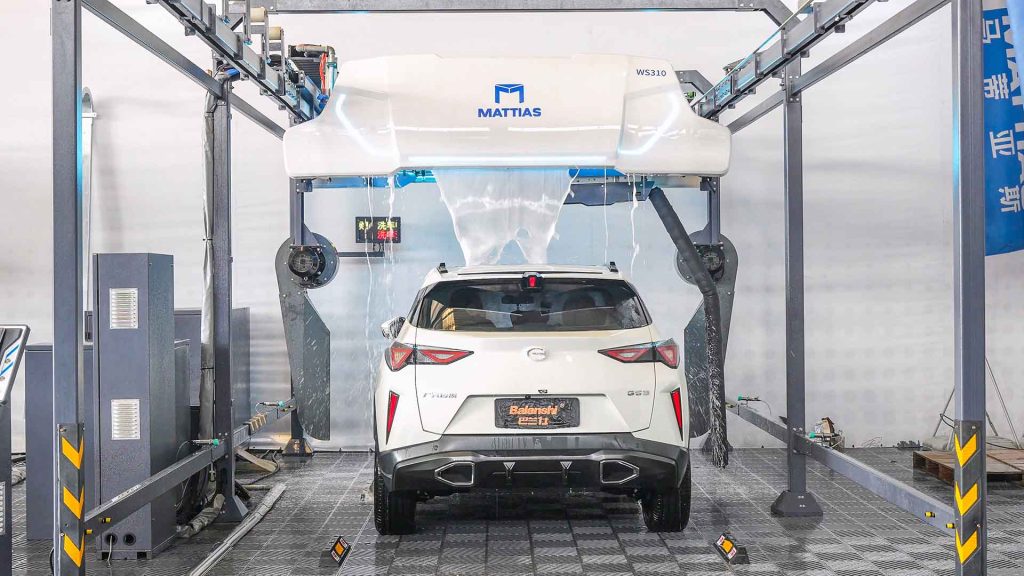
1. Touchless Car Wash Equipment Costs: $150,000–$500,000+
The core expense is the touchless car wash system. Prices vary based on automation level and brand:
- Entry-Level Systems: $150,000–$250,000
- Basic high-pressure sprayers, pre-soak applicators, and drying systems.
- Models: M-WS100
- Mid-Range Systems: $250,000–$400,000
- Advanced sensors for vehicle profiling, ceramic coating dispensers, and water recycling.
- Models: M-WS200
- Premium Systems: $400,000+
- AI-powered dirt detection, dual foam layers, and energy-efficient dryers.
- Models: M-WS310
Engineer Tip: Opt for modular systems. They let you add features like tire shiners or undercarriage sprays later, reducing upfront costs.
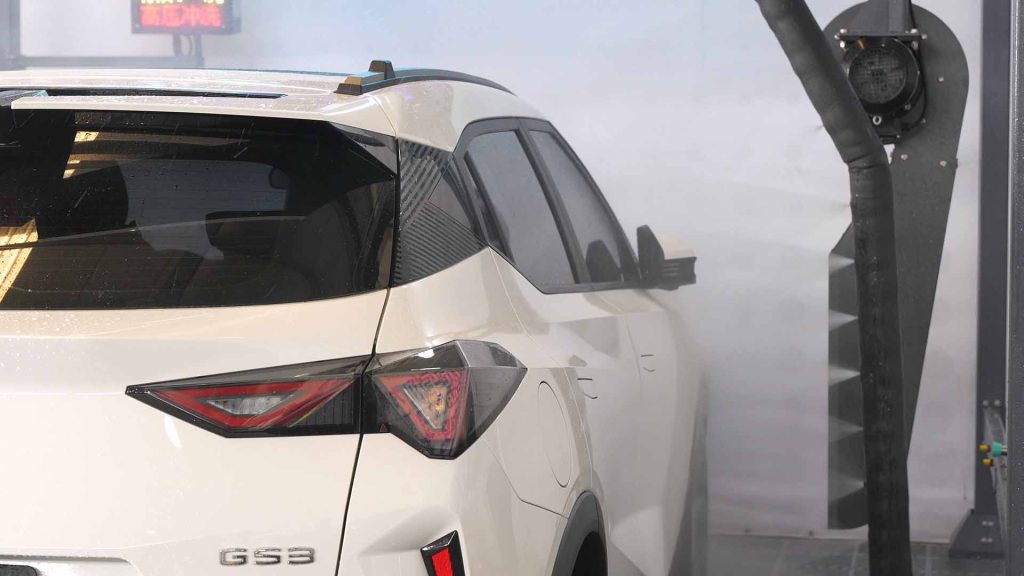
2. Site Preparation: $50,000–$200,000
Many first-time owners forget hidden site costs:
- Land Acquisition: $30–$150 per sq. ft. (varies by location).
- Concrete Foundation: $20,000–$50,000 (sloped floors for drainage).
- Utility Hookups: $15,000–$40,000 (3-phase power, water lines, drainage).
- Permits & Zoning: $5,000–$15,000 (environmental impact studies often required).
Pro Tip: Work with local contractors familiar with car wash codes. Improper drainage or electrical setups cause 30% of startup delays.
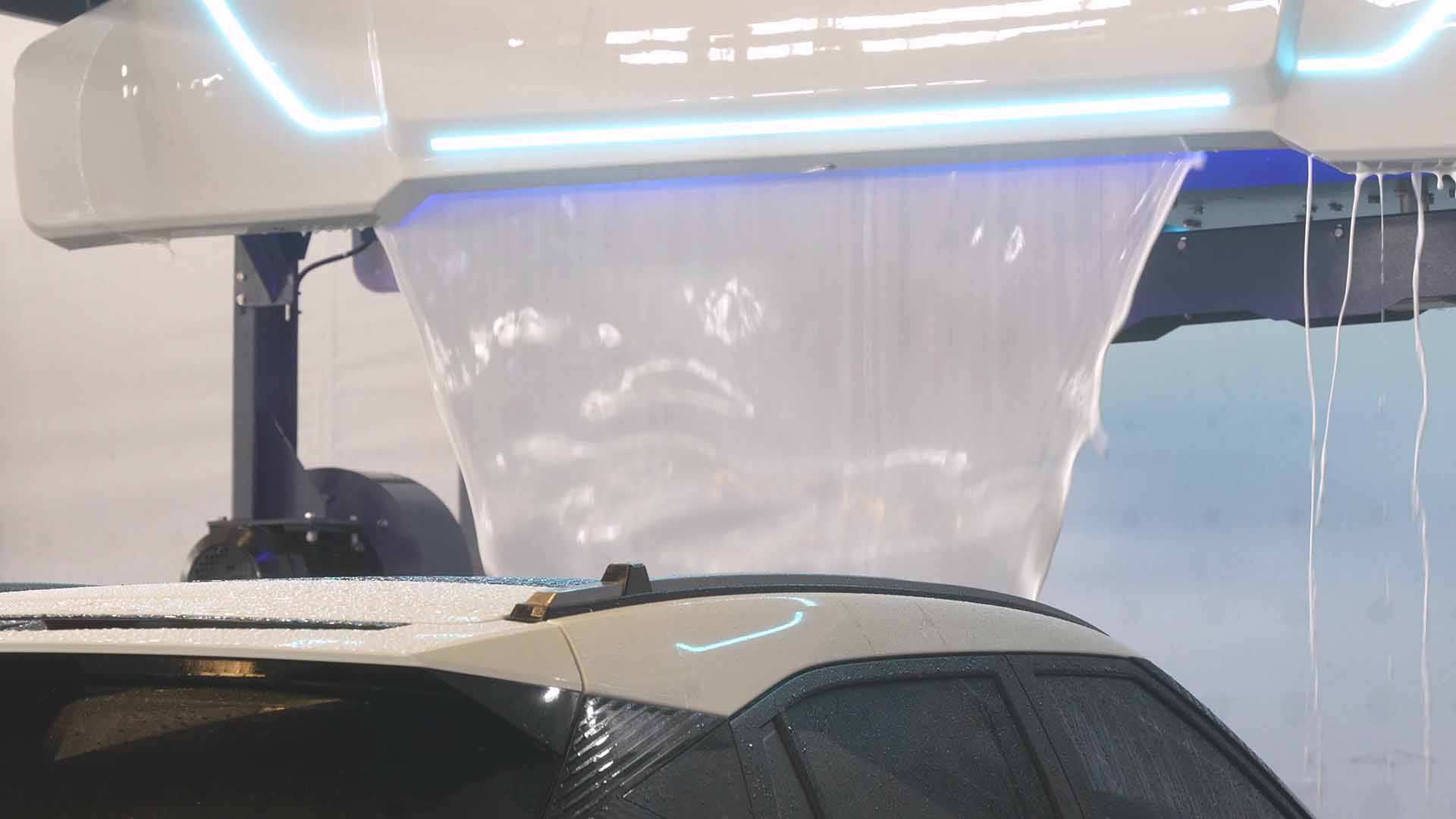
3. Installation & Labor: $30,000–$80,000
Professional installation ensures warranty compliance:
- Mechanical Setup: $15,000–$40,000 (nozzle alignment, pump calibration).
- Software Integration: $5,000–$20,000 (payment systems, vehicle tracking).
- Safety Testing: $2,000–$5,000 (pressure checks, emergency stop protocols).
Engineer Insight: Poorly calibrated sensors cause 25% of customer complaints. Allocate budget for precision tuning.
4. Operating Costs: $2,000–$6,000/month
Break down ongoing expenses:
- Water & Sewer: $800–$2,500/month (touchless washes use 30–50 gallons per car).
- Electricity: $500–$1,200/month (high-pressure pumps and dryers are power-hungry).
- Chemicals: $400–$1,000/month (pH-balanced soaps, sealants).
- Staff: $300–$800/month (1–2 attendants for maintenance and customer support).
Cost-Saving Hack: Install a water recycling system ($20,000–$40,000 upfront). It cuts water bills by 60–70% and appeals to eco-conscious customers.
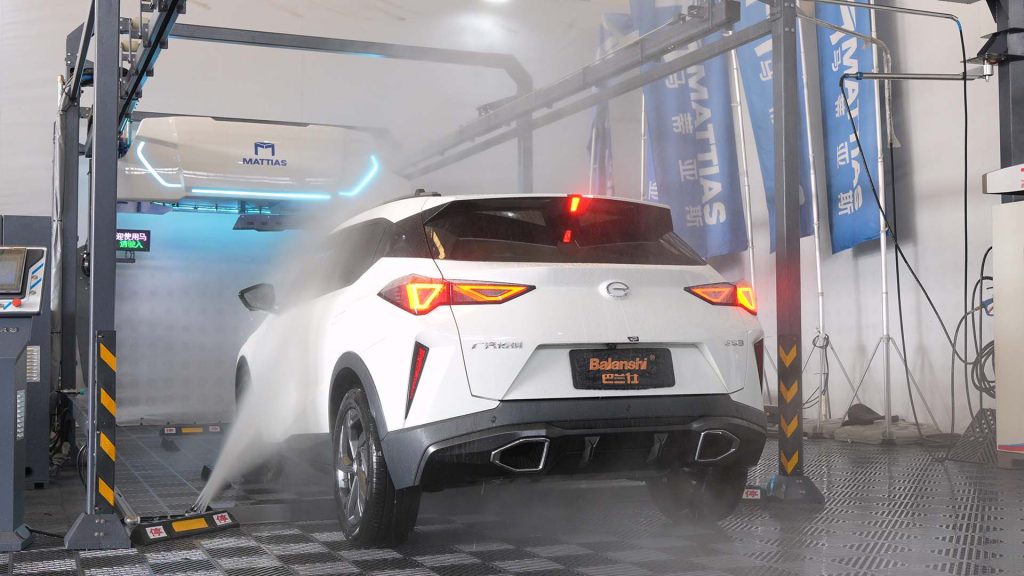
5. Maintenance & Repairs: $10,000–$25,000/year
Touchless systems need rigorous upkeep:
- Nozzle Replacement: $200–$600/quarter (mineral buildup clogs jets).
- Pump Overhauls: $2,000–$5,000 annually.
- Software Updates: $1,500–$3,000/year (cybersecurity patches, feature upgrades).
Pro Advice: Sign a preventive maintenance contract with your equipment provider. It costs $3,000–$7,000/year but avoids 80% of emergency repairs.
6. ROI Analysis: When Will You Break Even?
Assuming a $400,000 total investment and $15/car wash:
- Break-Even Point: 26,667 washes (≈3–4 years with 25 cars/day).
- Profit Boosters:
- Membership programs ($30–$50/month for unlimited washes).
- Add-ons like tire dressing ($5–$10 extra per customer).
Real-World Example: A Texas operator reduced payback to 2.5 years by upselling ceramic coatings ($50–$75/service).
Conclusion: Is a Touchless Car Wash Worth It?
While touchless systems cost 2–3x more than traditional tunnels, they attract premium customers and reduce labor headaches. Focus on water recycling and preventive maintenance to maximize ROI.
Next Step: Download our free Touchless Car Wash Budget Template (link) to model your costs.
| Cost Factor | Touchless Car Wash | Self-Serve Car Wash | Tunnel Car Wash |
| Initial Investment | $500,000 – $1.5M+ | $200,000 – $500,000 | $1M – $5M+ |
| Equipment Costs | $50,000 – $300,000+ (automated systems, sensors, high-pressure pumps) | $20,000 – $100,000 (per bay: spray wands, coin systems, vacuums) | $500,000 – $2M+ (conveyor systems, brushes, dryers) |
| Construction/Site Prep | $200,000 – $500,000 (single-bay drive-through) | $100,000 – $300,000 (multiple bays + vacuum stations) | $300,000 – $1M+ (large building, conveyor tunnel, drainage) |
| Utilities | High (water, chemicals, electricity) | Moderate (per-bay usage) | Very High (continuous water, energy, chemicals) |
| Labor Costs | Low (minimal staff for maintenance) | Low (attendant for oversight) | High (staff for operations, drying, customer service) |
| Maintenance | Moderate (sensors, pumps) | Low (simple equipment) | High (mechanical brushes, conveyor systems) |
| Revenue Potential | Moderate ($10–$20 per wash) | Variable ($5–$15 per wash + vacuums) | High ($15–$30+ per wash, high volume) |
| ROI Timeline | 3–7 years | 2–5 years | 5–10+ years (due to high upfront costs) |
| Pros | Minimal labor, modern appeal, gentle on vehicles. | Lowest startup costs, flexible customer usage. | High volume, premium pricing. |
| Cons | High water/chemical use, slower ROI. | Lower per-customer revenue, weather-dependent. | Massive upfront costs, complex maintenance. |
| Best For | Urban/suburban areas with tech-savvy customers. | Budget-conscious owners, rural/small-town markets. | High-traffic areas, franchises, or established brands. |
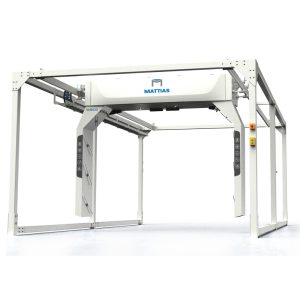 M-WS100 M-WS100 |
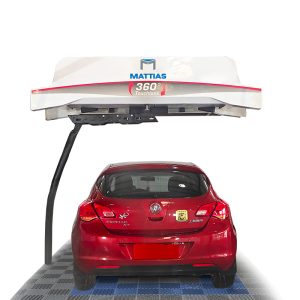 M-WS200 M-WS200 |
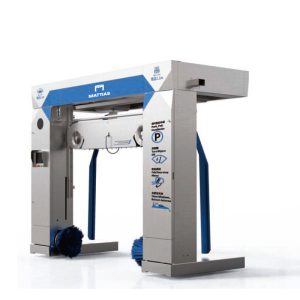 M-LM216 M-LM216 |
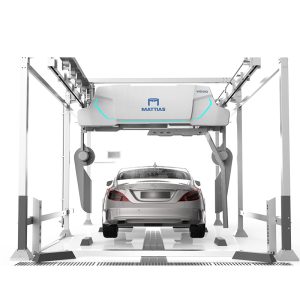 M-WS310 M-WS310 |



